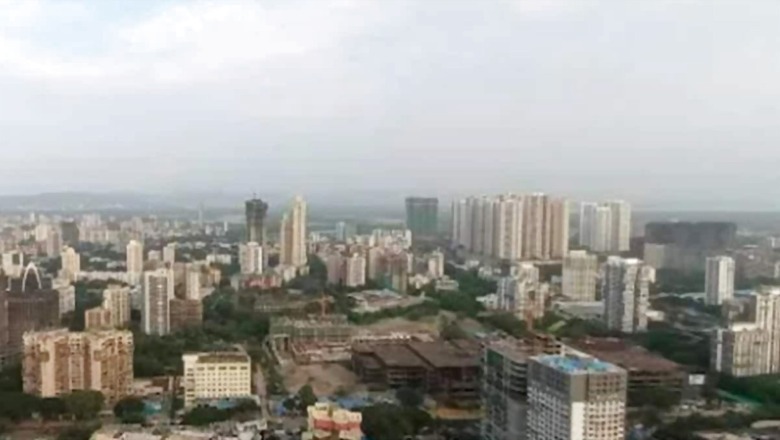
views
NRI (Non-Resident Indian) investment in India refers to investments made by individuals with Indian citizenship who are residing outside of India. The government has implemented various policies and regulations to facilitate NRI investments and encourage their participation in the Indian economy.
It’s important for NRIs to comply with the regulations and guidelines set by the RBI and other regulatory authorities while making investments in India. They should consult with financial advisors or professionals to understand the specific requirements, tax implications, and repatriation rules associated with their investments.
Apart from other avenues of investments, NRIs invest in residential and commercial properties in India.
Considering the elevated real estate investment demand by NRIs, SBNRI – the NRI-focused wealth management FinTech platform, in one of its findings said NRIs from top international countries eyeing the Indian commercial realty segment as a promising option for yielding safe and higher returns.
The survey revealed, around 52% of NRIs consider investing in Commercial Real Estate (CRE) to diversify their portfolio in the Indian real estate segment. This exhibits CRE as one of the most preferred asset classes for NRIs over others like the residential segment.
Furthermore, 18% of NRIs consider property management facilities like finding tenants, upkeep of the property, etc. as the biggest reason to invest in CRE than the residential segment.
Another SBNRI survey highlighted that 35% of each Singapore and UK-based NRIs prefer to invest their hard-earned money in India while 65% US-based NRIs prefer both – investing and sending money home in India.
Today, this article brings expert views around NRI investment hotspots in the near future, specially in micro markets of India including the scope in tier 1 and 2 cities.
Angad Bedi, MD, BCD Group feels that the Indian real estate is riding on a steady growth curve and this is garnering a lot of interest from the NRI investors. There’s never been a better time to invest in the sector as the Indian currency is depreciating and the NRIs are actively leveraging this to get higher values.
“For them real estate is offering them the right kind of opportunities where they can grow their money in the long run. On the back of rising demand, increasing input cost and land prices, real estate values are witnessing extensive appreciation in terms of delivered products,” Bedi added.
Bedi, however, added NRIs are still actively relying on the major cities like Delhi NCR, Mumbai, Bengaluru, Pune and Hyderabad as the rate of return is always high and the projects are also bigger and better in terms of overall quality and scale. Infrastructure is not the problem in the micro markets of smaller cities, but for the NRIs to invest in these markets, the projects need to be exciting and viable, so that they can get more confidence about the possible returns.
Is real estate a worth option for NRIs when the market is still not recovered well post pandemic?
Bhavesh Kothari, founder and CEO, Property First highlights even though the market has not recovered fully to its potential yet, there is a healthy momentum that is scripting the ongoing growth story of the real estate sector. Looking at the current demand, the supply pipeline, occupancy, increased confidence in real estate as a strong asset class and the steady launches, it can be anticipated that full recovery is not too far.
Kothari added that the real estate market has great potential across all segments which the NRIs are banking on, and they are already getting a taste of the robust performance. The luxury residential segment is doing extremely well and NRIs are investing heavily on various premium projects across the key markets. The recent Retail REIT IPO also garnered NRI investor interest owing to its huge potential.
Why NRIs will invest in micro markets and smaller cities when infrastructure is a problem in many small cities
Kothari added that though infrastructure is a problem in the micro markets and tier-II cities, affordability is a lucrative proposition for the NRI investors. Real estate prices in micro markets and smaller cities are much more affordable than in major metros, making them an attractive investment option for NRIs on a budget. These micro markets and smaller cities are growing rapidly, both economically and demographically. This growth is creating a demand for new housing, thus benefiting investors who buy early.
Besides, real estate in micro markets and smaller cities is relatively liquid, making it easy for investors to sell their properties if they need to. The government is also investing heavily in improving infrastructure across the country through various proactive policies, which is improving the overall investment sentiment in these markets.
Which cities to see the impact of NRI investments?
While the micro markets of Delhi NCR, Bengaluru, Mumbai and Hyderabad are attracting maximum investor interest due to fast infrastructural growth, connectivity, availability of resources etc, the micro markets of Pune, Kochi, Coimbatore and Chandigarh are also fast emerging as real estate hotspots.
These markets are witnessing a surge in demand across the residential and commercial segments. The warehousing and Industrial sector is also growing in these regions, thus creating a healthy demand for large land parcels.
Some of India’s major real estate players like Godrej, DLF etc. are looking for land parcels and will be entering into smaller cities this year, giving investors many more avenues to invest, Kothari concluded.
















Comments
0 comment